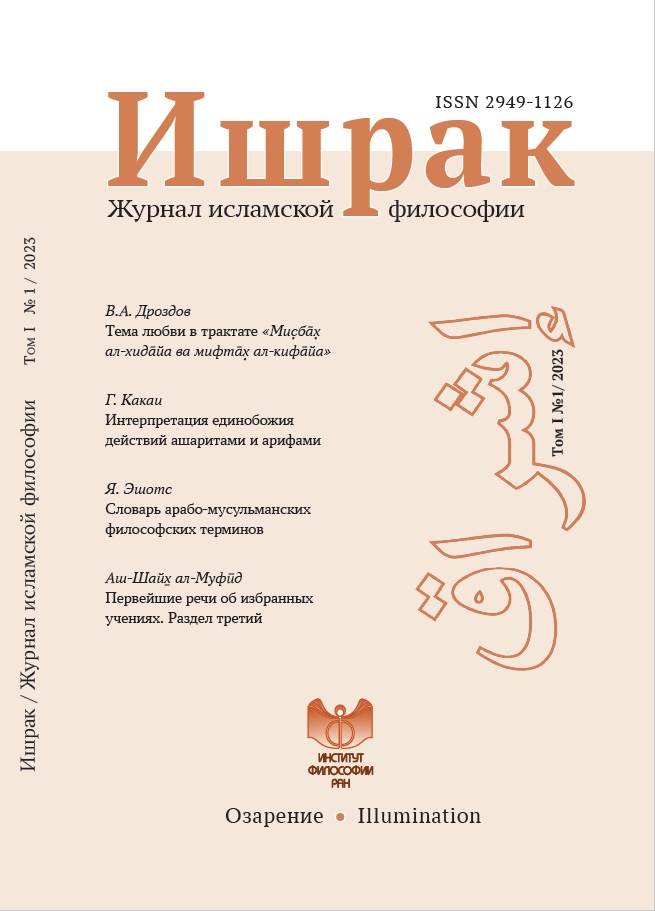“Tawḥīd al-Afʿāl” in Jalāl al-Dīn Rūmī Legacy
Abstract
Monotheism is a core idea of the Islamic faith. Its comprehension consists of answers to the questions about God’s attitude towards everything else (mā siwā Allāh). One of the key questions of the doctrine of monotheism is the question of divine and human actions — who is the true actor of the processes taking place in the world, can there be other actors along with the One Creator of all things, how autonomous is a person in his actions? Various solutions to these questions constitute the content of the doctrine of the monotheism of actions. On the issue of interpreting the monotheism of actions, in particular, there is a watershed between the views of al-Ašʿarī and Rūmī. Although we have a significant number of translations of Rūmī’s legacy in Russian, his religious and philosophical views in the Russian-speaking scientific space remain poorly studied. In this article, the author seeks to clarify the question of how Rūmī interprets the monotheism of actions and to explain some of the apparent contradictions which are found in his writings when the medieval classic talks about the autonomy of human actions. The appendix to the article contains a translation of a chapter from Rūmī’s treatise ‘In Him is What is in Him’, where Rūmī discusses in detail about the monotheism of actions.


